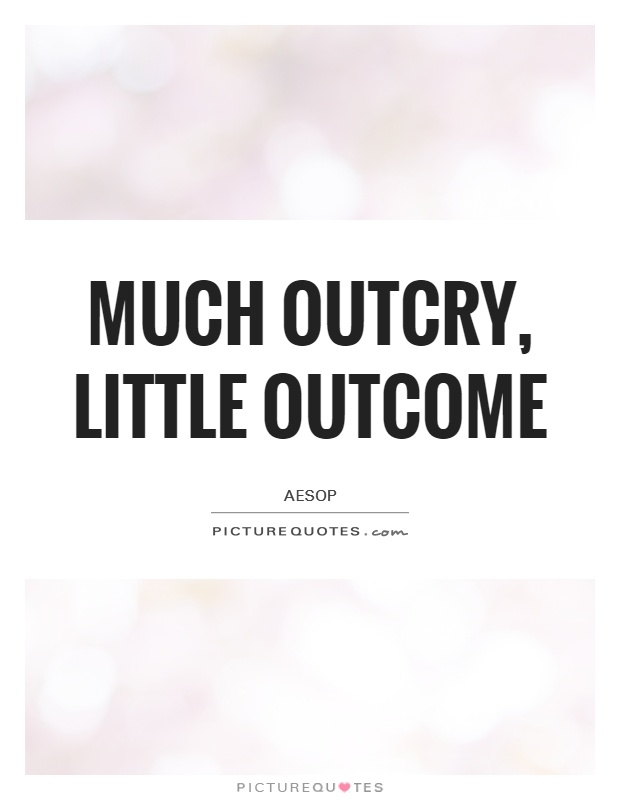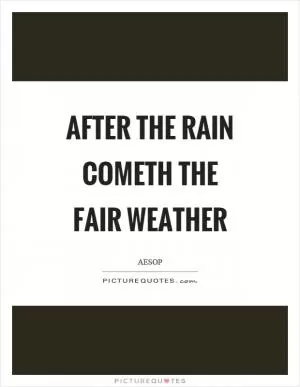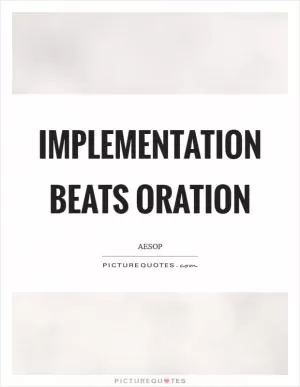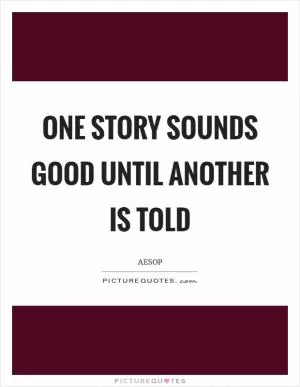
Much outcry, little outcome

Much outcry, little outcome
The phrase "much outcry, little outcome" is a common theme in many of Aesop's fables. Aesop, a Greek storyteller believed to have lived in the 6th century BC, is famous for his moralistic tales that often feature animals as characters. In many of his fables, characters make a lot of noise or protest loudly about a situation, but ultimately achieve very little or no real change.One of the most well-known examples of this theme is the fable of "The Boy Who Cried Wolf." In this story, a young shepherd boy repeatedly tricks the villagers into thinking a wolf is attacking his flock of sheep. Each time he cries out for help, the villagers come running to his aid, only to discover that there is no wolf. Eventually, when a real wolf does appear and the boy cries out for help, the villagers ignore him, believing it to be another false alarm. As a result, the wolf attacks the sheep and the boy learns the hard way that his deceitful behavior has consequences.
Another fable that illustrates the concept of "much outcry, little outcome" is "The Fox and the Grapes." In this story, a hungry fox sees a bunch of ripe grapes hanging from a vine and desperately tries to reach them. After several failed attempts, the fox gives up and walks away, declaring that the grapes were probably sour anyway. The fox's loud complaints about the grapes being out of reach demonstrate his frustration and disappointment, but ultimately he is unable to change the situation and must accept the outcome.
These fables serve as cautionary tales about the consequences of making empty promises, exaggerating the truth, or complaining without taking action. They remind us that words alone are not enough to bring about real change and that actions speak louder than words. In the end, it is not the volume of our outcry that matters, but the sincerity and integrity of our actions that determine the outcome.












 Friendship Quotes
Friendship Quotes Love Quotes
Love Quotes Life Quotes
Life Quotes Funny Quotes
Funny Quotes Motivational Quotes
Motivational Quotes Inspirational Quotes
Inspirational Quotes